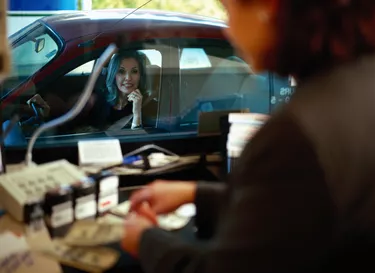
The easiest way to cash a personal check is to bring it to your bank, sign the back of it and request the cash. If you don't have a bank account, however, you'll still be able to cash the check. The bank that issued the check will cash it for you, and multiple other outlets may do so as well for a small fee.
Go to the Bank
Video of the Day
You generally can go to the issuing bank and cash the check, even if you don't have an account there. You'll need to provide a state-issued picture ID, such as a driver's license, and may be asked to provide a thumbprint or other identifying information. This protects the bank in case someone steals an account holder's checkbook and tries to cash a fraudulent check. You'll generally pay a small fee for this service, though that depends on the bank.
Video of the Day
Other Check-Cashing Options
Check-cashing stores will turn your paper into money for either a flat fee or a percentage of the check's value. Some retailers, such as Wal-Mart, provide a similar service. The cost for cashing a personal check generally is greater than for a payroll or government check because of the increased risk that it will be returned for insufficient funds. If that happens, you're responsible for refunding the money and can face collection action if you fail to do so. The smaller the check, the easier it will be to cash. Many third-party check-cashing services have an upper limit beyond which they won't cash a personal check.